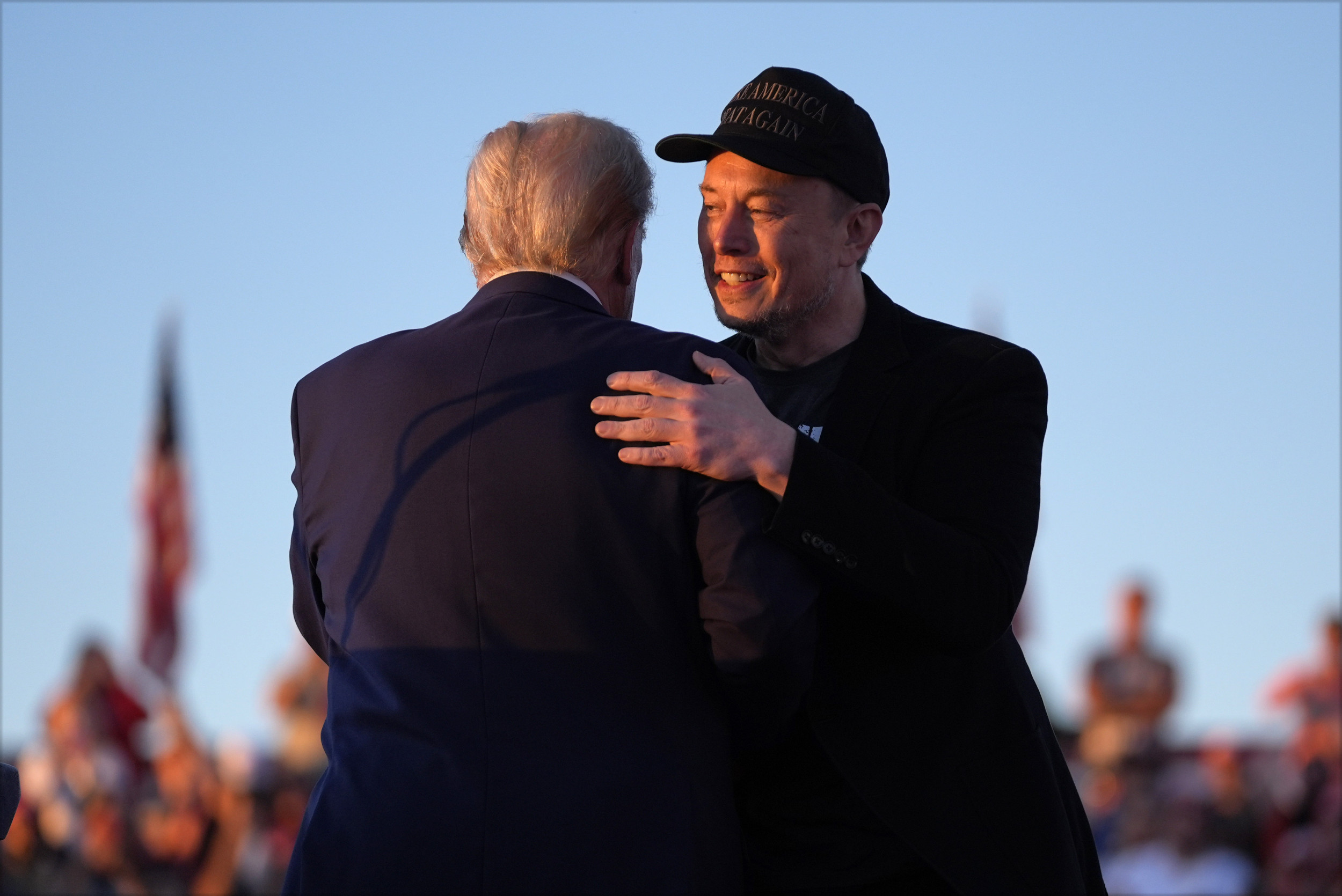Last weekend’s rally in Butler, Pennsylvania, featured an unexpected moment: Elon Musk, donning a black MAGA hat, enthusiastically joining Donald Trump on stage. This scene is a striking representation of the evolving political landscape as we gear up for the 2024 presidential race.
Since Musk endorsed Trump in July—shortly after a controversial assassination attempt—his influence on the campaign has only grown. Regular communications with Trump, frequent financial contributions to Republican initiatives, and a visible partnership suggest a deepening alliance between the tech mogul and the former president.

Once a centrist Democrat, Musk claims his shift towards Trump is fueled by fears over free speech and perceived threats to democracy under a potential Democratic administration. In recent weeks, his posts on X (formerly Twitter) have taken a dire tone, warning of the implications if Trump doesn’t win.
His support for Trump is more than just verbal; Musk is mobilizing resources and leveraging his fame to galvanize voters for the election. Reports indicate he has already contributed $80 million through his own America PAC, with intentions to increase that significantly.
Additionally, Musk’s role may extend beyond financial support. Trump has hinted at the possibility of appointing Musk to oversee a “government efficiency commission” if he’s re-elected, marking a dramatic shift from Musk’s previous stance of avoiding political donations.
This political realignment is often viewed as a strategy to counteract the regulatory challenges Musk’s companies have encountered since Biden took office. Under the Biden administration, Musk’s businesses have faced scrutiny from multiple federal agencies on various fronts—from safety regulations at Tesla to environmental compliance issues with SpaceX.
Here’s a brief overview of the current regulatory challenges Musk faces:
NHTSA vs. Tesla
The National Highway Traffic Safety Administration (NHTSA) has been investigating Tesla’s Autopilot system since 2021, citing safety concerns connected to numerous accidents.
SEC vs. Tesla
In 2021, the SEC launched an investigation regarding disclosure failures related to fire risks in Tesla’s solar products and has sought sanctions against Musk for not testifying appropriately in a related matter.
NLRB vs. Tesla
The National Labor Relations Board accused Tesla of anti-union practices at its Buffalo facility, claiming infringement of workers’ rights through restrictive policies.
FWS vs. SpaceX
The U.S. Fish and Wildlife Service expressed concerns about the ecological impact of SpaceX operations in Texas, particularly regarding endangered species.

Federal investigations also include allegations raised by the DOJ concerning potential financial misconduct at Tesla and the FTC examining the accuracy of Tesla’s advertising practices.
Musk’s political pivot has sparked speculation that it is a strategic effort to reshape the regulatory environment he faces if Trump regains power. As he questions the implications of a Trump loss, the stakes in the upcoming election couldn’t be higher for Musk.
Looking Ahead
With the election approaching, how Musk’s increasing alignment with Trump plays out remains to be seen. What’s clear is that both are betting on a future where regulatory burdens may be lifted in favor of their ambitions.

